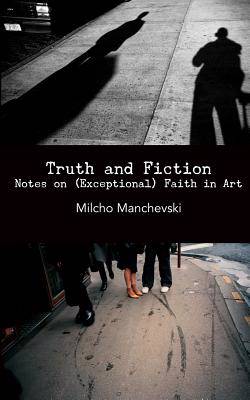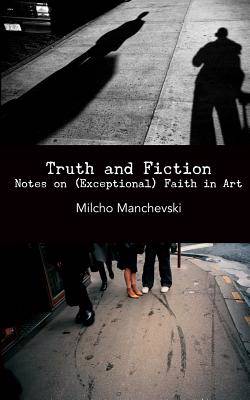
- Afhalen na 1 uur in een winkel met voorraad
- Gratis thuislevering in België vanaf € 30
- Ruim aanbod met 7 miljoen producten
- Afhalen na 1 uur in een winkel met voorraad
- Gratis thuislevering in België vanaf € 30
- Ruim aanbod met 7 miljoen producten
Truth and Fiction
Notes on (Exceptional) Faith in Art
Adrian Martin, Milcho ManchevskiOmschrijving
"Most of us look at films differently or accept stories in a different way if we believe that they are true. We watch a documentary film in a different way from the way we watch a drama. We read a magazine article in a different way from the way in which we read a short story. Sometimes, we even treat a film that employs actors differently than a regular drama because we were told that it is based on something that really happened. We treat these works based on truth or reporting on the truth in different ways. Why? What is it in our relation to reality or in our relation to what we perceive to be reality that makes us value a work of artifice (an art piece) differently depending on our knowledge or conviction of whether that work of artifice is based on events that really took place?"
In this extended essay, or letter, Manchevski ruminates the different ways in which both filmmakers and audiences create, experience, and absorb the cinematic narrative with a certain trust and faith in the artwork to render, not the factual truth, per se, but the importantly shared experience of trusting "the plane of reality created by the work itself," such that "we trust its inner logic and integrity, we have faith in what happens while we give ourselves to this work of art." Truth becomes a question of what artist and audience can see and feel together: what feels real becomes the world we inhabit.
The book also includes an Afterword, "Truth Approaches, Reality Affects," by internationally renowned film scholar Adrian Martin.
Specificaties
Betrokkenen
- Auteur(s):
- Uitgeverij:
Inhoud
- Aantal bladzijden:
- 54
- Taal:
- Engels
Eigenschappen
- Productcode (EAN):
- 9780615647104
- Verschijningsdatum:
- 25/05/2012
- Uitvoering:
- Paperback
- Formaat:
- Trade paperback (VS)
- Afmetingen:
- 127 mm x 203 mm
- Gewicht:
- 63 g

Alleen bij Standaard Boekhandel
Beoordelingen
We publiceren alleen reviews die voldoen aan de voorwaarden voor reviews. Bekijk onze voorwaarden voor reviews.









